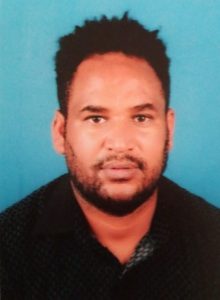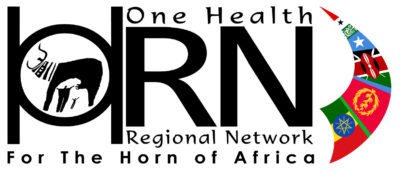 Birhanu Hadush was awarded with Degree of Doctor of Veterinary Medicine (2004), Master of Science in Tropical Animal Health (2010) and PhD in Bioscience Engineering (2016) respectively from Addis Ababa University (Ethiopia), Institute of Tropical Medicine (Belgium) and Katholiekie Universiteit Leuven (Belgium). In 2017, I received a Faculty Staff Exchange Fellowship from USDA for 4 months stay in research and academic experience in Iowa State University, USA. Currently I am working as academic and research staff in College of Veterinary Sciences, Mekelle University. I am disease control specialist interested in vector, vector borne and other infectious diseases, and zoonosis. Within the scope of trypanosomes, as part of my PhD and MSc study, I worked on molecular epidemiology, population genetics, pehenotypic and genetic analysis of trypanocidal drug resistance and identification and development of diagnostic markers. My recent research works are on Pasteurellosis of ruminants and Epizootic lymphangitis of horses. I teach and supervise to PhD, MSc and DVM students, with emphasis on control of zoonosis, and infectious and vector borne diseases of camels, cattle, sheep, goats and equines. Administratively, I am Director of the Postgraduate Research Directorate of Mekelle University, Editor in chief to Ethiopian Journal of Veterinary Sciences[1] and Assistant editor to Ethiopian Veterinary Journal[2]. My publications and citation impact can be seen in Google scholar[3]
Birhanu Hadush was awarded with Degree of Doctor of Veterinary Medicine (2004), Master of Science in Tropical Animal Health (2010) and PhD in Bioscience Engineering (2016) respectively from Addis Ababa University (Ethiopia), Institute of Tropical Medicine (Belgium) and Katholiekie Universiteit Leuven (Belgium). In 2017, I received a Faculty Staff Exchange Fellowship from USDA for 4 months stay in research and academic experience in Iowa State University, USA. Currently I am working as academic and research staff in College of Veterinary Sciences, Mekelle University. I am disease control specialist interested in vector, vector borne and other infectious diseases, and zoonosis. Within the scope of trypanosomes, as part of my PhD and MSc study, I worked on molecular epidemiology, population genetics, pehenotypic and genetic analysis of trypanocidal drug resistance and identification and development of diagnostic markers. My recent research works are on Pasteurellosis of ruminants and Epizootic lymphangitis of horses. I teach and supervise to PhD, MSc and DVM students, with emphasis on control of zoonosis, and infectious and vector borne diseases of camels, cattle, sheep, goats and equines. Administratively, I am Director of the Postgraduate Research Directorate of Mekelle University, Editor in chief to Ethiopian Journal of Veterinary Sciences[1] and Assistant editor to Ethiopian Veterinary Journal[2]. My publications and citation impact can be seen in Google scholar[3]
Contact address: [email protected] or +251 919 36 65 78
Sandpit 2019 project: OHWASH (One Health Water Sanitation and Hygiene): Integrated survey on human and animal faeces management and its determinants in HDSS sites of 3 regions of Ethiopia. This study will be conducted in Kilte-awlaelo, Butajira and Gilgelghibe Health and Demographic Survey Sites (HDSS). The study aims to establish determinant factors that affect proper management of human and animal faces, and identify microbes as a proxy indicator of environmental contamination. The ultimate aim is to provide evidence for revisiting the existing global WaSH program (Water Sanitation and Hygiene).
[1] http://www.mu.edu.et/ejvsap/index.php/EJVSAP/about/editorialTeam
[2] https://www.ajol.info/index.php/evj/about/editorialPolicies#custom-1
[3] https://scholar.google.com/citations?user=cDnaouIAAAAJ&hl=en
